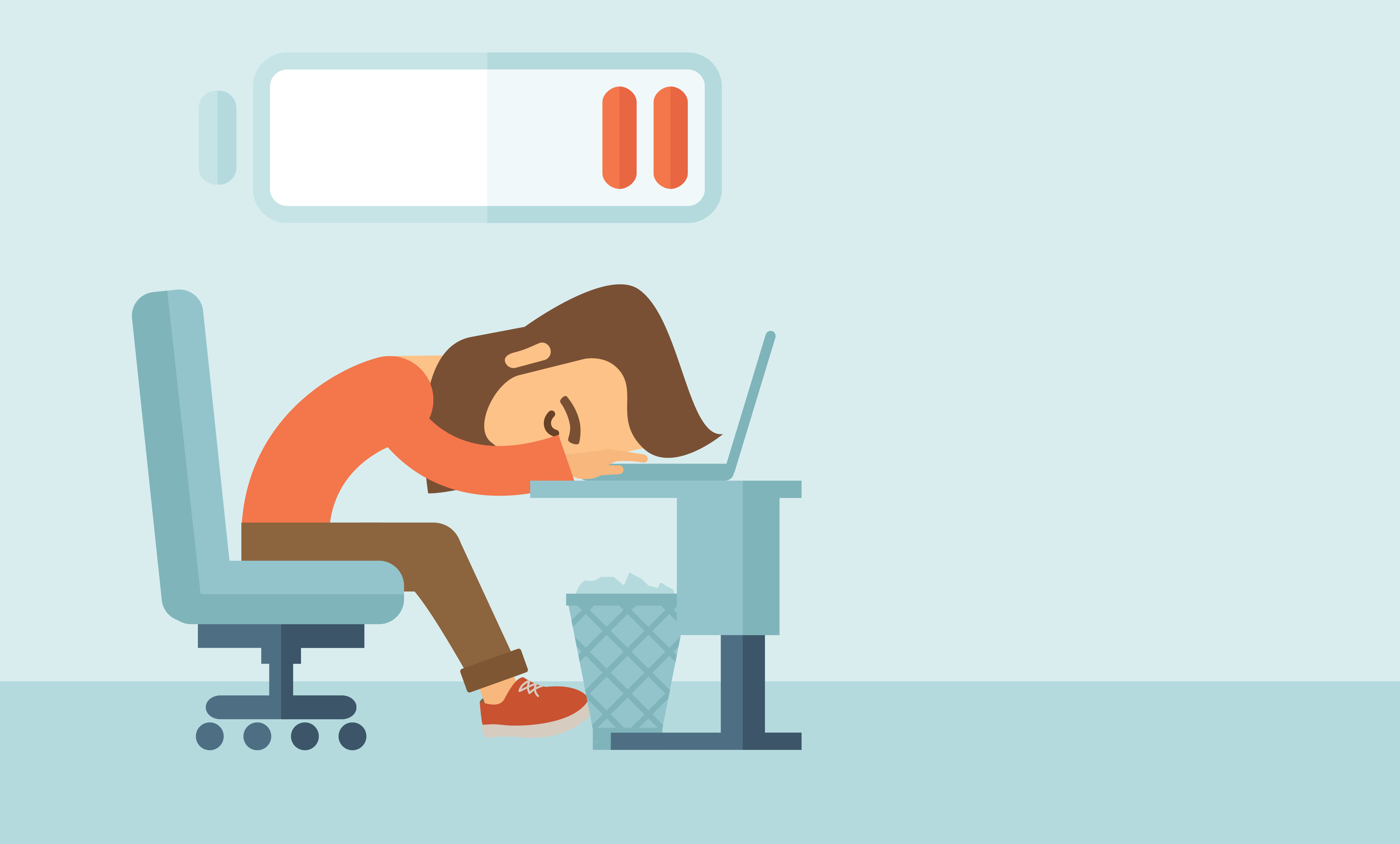For many people, work is both emotionally and physically draining — most days everything is far too much effort.
Lack of energy to do your most important tasks isn’t always just a physical problem. Energy can also be emotional — just think how exhausted you feel after a marathon meeting or when resolving conflict at work or at home.
“Just the way physical energy helps you push through physical barriers, emotional energy helps you push through emotional barriers,” says therapist Mira Kirshenbaum, author of The Emotional Energy Factor.
“In our culture, most people are healthy enough and most tasks are not all that physically demanding. The real difference between what people bring to their tasks — to their lives — is emotional energy, ” Kirshenbaum explains.
Being efficient at work starts with knowing what drains you and what sustains you throughout the day. Despite our best efforts to be productive, things don’t always go as planned.
“Everyone’s energy flags at work every now and then–and for lots of reasons. But if you’re constantly running on fumes and aren’t sure why, it could be your brain’s way of signaling that you’re spending time in the wrong place,” says Art Markman, PhD, a professor of Psychology.
To improve your performance, conduct an energy audit
To maintain your efficiency and get more done every day or week, identify all the activities that drain not just your time, but your energy and those that sustain you, and do more of what makes you come alive.
Here is a simple exercise you can do for a few working days to start making changes — before you start your workday, write down everything you tend to do (urgent, important, distractions and unintentional diversions) at work. After every activity, note whether it drains you or helps you move to the next one.
Remember, the time of day can also affect your energy level — most people do better in the morning and tend to feel tired after midday. “By 2 p.m. you’re moving through your tasks in slow motion, your attention is flagging in meetings, and the effort to focus is more than you can summon,” writes Markman.
Everyone functions differently. Find out if you have more energy for certain tasks at specific times during the day.
After three days (or a week if want better insight), review your “energy balance sheet”. Separate tasks that drain you from those that sustain you. Which activities and people raise your spirits? And what makes your heart sink? Is there a way to incorporate more of what sustains you and to cancel do less of what drains you?
“It has to do with knowing what works for you, what’s good for you,” says Kirshenbaum. “If you’re an introvert, for example, you can be good with people, but it wears on you. You really need your alone time to recharge your batteries. If you’re a creative person, you need to do things that keep your creative juices flowing. Most of the time, we do know these things about ourselves. The problem is that we don’t accept how important they are to us.”
Many people are unhappy and drained at work because they haven’t tapped into what fundamentally sustains them — they do more of what tends to stress them out.
So, think deeply about how you distribute your energy at work. Perhaps there’s a disconnect between what engages you and everything that makes your day unproductive.
If you have too many commitments, the probability of engaging in activities or conversations that drain you increases — you tend to lose focus and interest easily. This drains your energy faster.
Sometimes it comes down to people — negative, critical, discouraging, time-wasting people who take more than they give. Set your clear boundaries and stick to it.
In some cases of feeling drained, it’s often because you are not taking the breaks you need for your body and brain to function at their optimal levels. Taking an intentional break helps you to clear your head and shift your focus.
If you don’t have time to take care of yourself and recharge, you won’t be able to function at your best.
Taking time for yourself — either a small amount each day or a bigger amount a few times a week can reduce stress and mental fatigue.
Don’t take nutrition for granted. When your body and mind are fueled with more nourishing foods, especially before you begin your day, it helps you feel better, think clearly and be more energetic. When in doubt, get more sleep, a better diet, or more exercise.
If your work is emotionally draining, you will have to do more to take care of yourself. When work is emotionally draining, going to work feels like an uphill battle every day.
“In burnout, detachment is a general sense of feeling disconnected to people and your environment. But it also can take the form of detaching yourself emotionally and physically from your job and your responsibilities,” says psychotherapist and author Sherrie Bourg Carter, Psy.D.
Learning about emotional and physical drain matters. When we’re drained, you’re prone to errors — work is less enjoyable.
Feeling the strain and stress from a demanding task is not fun, but there is hope if you are willing to take action and find the source of the problem and take the necessary step to change.
Originally published on Medium.
Follow us here and subscribe here for all the latest news on how you can keep Thriving.
Stay up to date or catch-up on all our podcasts with Arianna Huffington here.


